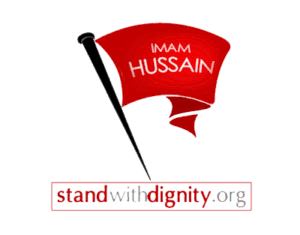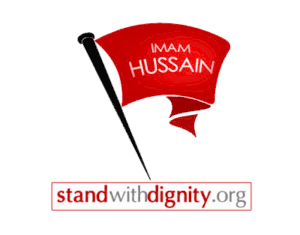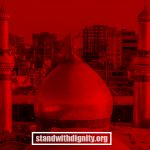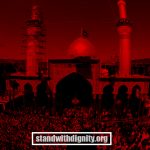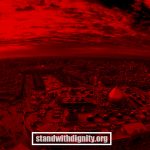By Fatima Kermalli
One of the most ironic aspects of Imam Hussain’s existence, despite his high status, is that he remains unknown to much of the world. The tragedy lies not only in the way he was killed but also in how his story has not been widely publicized.
For centuries, the martyrdom of Imam Hussain and the events of Karbala have been—and continue to be—commemorated by Shia Muslims each year. The lessons Imam Hussain demonstrated—upholding truth against falsehood, making sacrifices, observing dignity and honor, forsaking subjugation, disallowing oppression, and many more values that uplift humanity—were hidden gems. Only those who were aware of Imam Hussain’s stance were inspired to stand against dynasties and oppressive regimes, including figures like Gandhi and Mandela.
Mahatma Gandhi stated:
“Imam Hassan and Hussain were merely two boys. They felt that an injustice had been done to them. When called upon to surrender, they refused. They knew at the time that this would mean death for them. If, however, they were to submit to injustice, they would disgrace their manhood and betray their religion. In these circumstances, they yielded to the embrace of death. The heads of these fine young men rolled on the battlefield. In my view, Islam did not attain its greatness by the power of the sword but entirely through the self-immolation of its fakirs (saints).”
The Collected Works of Mahatma Gandhi, Vol 13, Letter #395, Pg 518.
Imam Hussain’s mission is so powerful that it has the ability to awaken hearts and inspire individuals and groups to make a positive difference in their own lives and the lives of others. This inspiration is timeless and not limited to any era. For instance, in 2012, a small group of young Londoners from diverse backgrounds came together with one goal: to tell the world about a man who endlessly inspires. These young men started a campaign called “Who is Hussain?” They launched the campaign with billboards in the London Underground, asking: “Who is Hussain?” It became international, with people around the world—from Africa to India—displaying poster designs on billboards in their cities. A movement began, and representatives and volunteers with the Who is Hussain campaign now organize charitable events to benefit their communities worldwide, including blood donation drives and feeding the homeless.
Therefore, Imam Hussain has inspired people on many levels—philanthropy being one, social justice another.
Today, the world is witnessing another Karbala based on oppression and injustice. The cruelty and tyrant occurring in Palestine are blatant. For over 21 months, thousands of innocent men, women, and children have been mercilessly killed. Several hundred thousand more have been injured. Homes, hospitals, schools, bakeries, and other civil infrastructure have been deliberately destroyed. People are left starving. Currently, people are literally starving to death due to induced starvation. 175 people have died from starvation and malnutrition. and including 93 children. Food the most basic necessity of human life is blocked from going into Gaza. Last month, more than 100 international aid organizations and human rights groups warned of mass starvation in Gaza and pressed for governments to take action. Still, Atrocities continue, and the world looks on, as enough powerful entities have not come together to stop the genocide. Rather, the corrupt regime is aided in its vicious mission to annihilate the Palestinian people.
Protests by people around the globe have ensued, but not enough to topple the despots perpetrating this genocide.
Imam Hussain’s legacy was to resist all oppression and be a voice for the downtrodden and oppressed. Thus, as individuals and as collective groups, it is our responsibility not to remain silent and to express, in whatever form, the injustices occurring daily in Palestine and around the world.
Imam Hussain did not pay allegiance to Yazid, the tyrant of his time. Today, we must not legitimize entities or powers that are corrupt. Imam Hussain did not allow the tenets of Islam to be tainted by succumbing to the powers of his era. Today, we must not partake in acts that compromise one’s faith. Furthermore, if a person does not live by the dictates of a faith system, then Imam Hussain implored people to live their lives as free people and be humane. Part of the issue is the lack of humanity in humans. On the Day of Ashura Imam Hussain said “If you do not have any religion, then at least be free (open-minded) in your present life.” Part of the mission of Imam Hussain (as) was to not only awaken the sleeping heart, but also for each one of us to tap into our souls and find the strength and sincerity to make positive change within ourselves and the environment and people around us.
